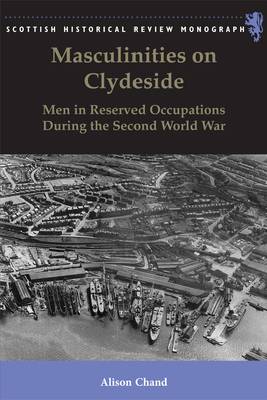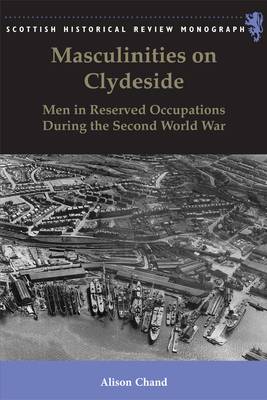
- Retrait gratuit dans votre magasin Club
- 7.000.000 titres dans notre catalogue
- Payer en toute sécurité
- Toujours un magasin près de chez vous
- Retrait gratuit dans votre magasin Club
- 7.000.0000 titres dans notre catalogue
- Payer en toute sécurité
- Toujours un magasin près de chez vous
Description
Masculinities on Clydeside explores the experiences of civilian men on Clydeside during the war, using oral history interviews as a means to explore subjectivity and arguing for continuous personal agency through major historical changes. While men in reserved occupations are understood as extensively influenced by 'imagined' discourses, often resulting in feelings of guilt and emasculation, their subjectivities were nonetheless ultimately rooted in their 'lived' and immediate local vicinities, and the people and places of their everyday lives. This ultimate relevance of lived existence and the everyday also meant that while wartime relations between men and women were clearly shaped by a range of gender discourses and continually renegotiated, gender boundaries were never fixed or truly separate.
The analysis looks at wider subjectivities, encompassing national and political identities, class consciousness, religious subjectivities and social activities, as well as examining women's experiences of working in reserved occupations in wartime and their interactions with civilian men.
Spécifications
Parties prenantes
- Auteur(s) :
- Editeur:
Contenu
- Nombre de pages :
- 216
- Langue:
- Anglais
- Collection :
Caractéristiques
- EAN:
- 9781474409360
- Date de parution :
- 19-07-16
- Format:
- Livre relié
- Format numérique:
- Genaaid
- Dimensions :
- 157 mm x 239 mm
- Poids :
- 408 g

Les avis
Nous publions uniquement les avis qui respectent les conditions requises. Consultez nos conditions pour les avis.






